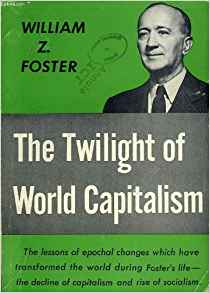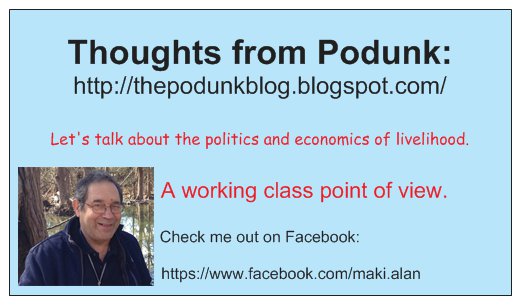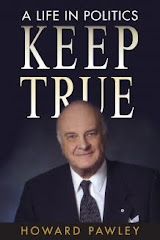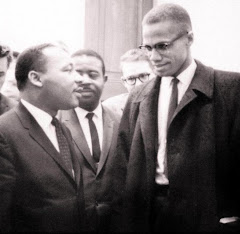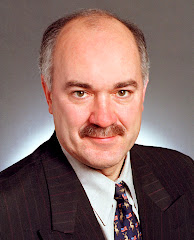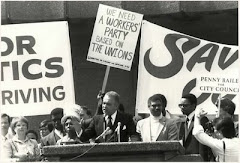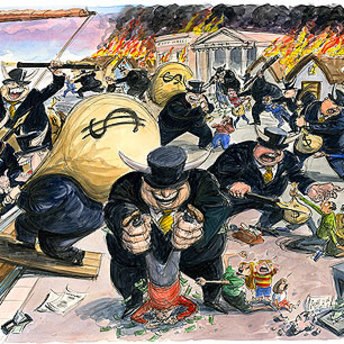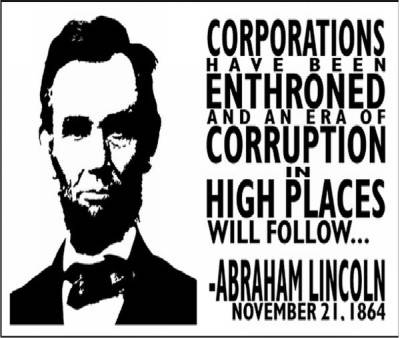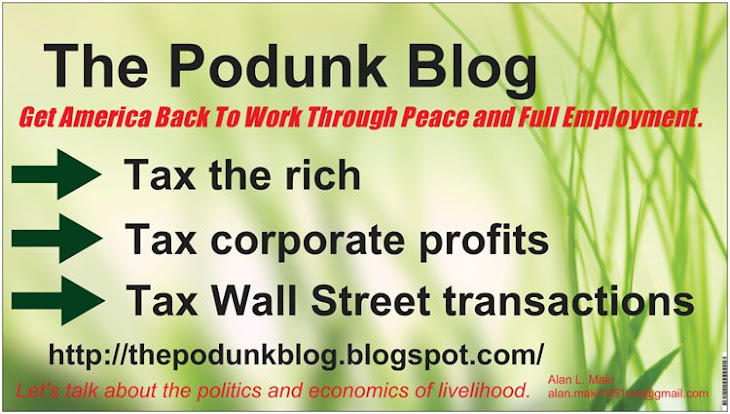Sunday, November 7, 2010
Peace = health care + child care + over 15,000,000 new jobs
Neither Paul Krugman nor Evan Bayh place the questions about the economy correctly by asking this very important and fundamental question:
How is Obama's war economy working for you?
One has to ask how it can possibly be that neither Krugman the economist nor Bayh the politician don't even mention these extremely costly dirty wars in Iraq and Afghanistan in either of their op/ed pieces when putting an end to this massive waste is what is required if we our going to solve our many problems.
In fact, Bayh talks about Obama making a mistake about putting health care reform before creating jobs while Krugman turns around and says that Bayh is wrong.
Well, the fact is both Krugman and Bayh are wrong because Obama and the Democrats could have killed three birds with one stone by ending these dirty wars and using the money saved to finance a National Public Health Care System providing the American people with free health care through a national network of 30,000 public health care centers which would have created around ten-million new decent good-paying jobs.
Peace = health care + jobs
There would have been enough money left to create a National Public Child Care System, too; thus solving another major problem for most working class families while creating over 5 million new jobs.
Peace = health care + child care + over 15,000,000 new jobs
Why is it so hard for these economists and politicians to figure out the most jobs are created by putting people to work solving the problems of working people while creating a more just and humane society?
If additional funding is needed you simply tax the hell out of the rich who have been stashing away their profits for four or five generations so what we need to do is take their money to redistribute this massive wealth that working people created and Wall Street coupon clippers socked away.
If need be a tax similar to the Social Security tax could be implemented to pay for national public health care and national public child care... no one would or could object since they would be getting something of real value instead of the bloody mess that comes with wars that cost way more than health care or child care ever would cost.
Paul Krugman says he wants to hear answers so this is my answer to him and the politicians.
I don't get it; how can any reasonably intelligent person not understand that by implementing both National Public Health Care and National Public Child Care programs you create jobs at the same time?
Chances are, like the wars, which the majority of the American people want to end... the majority of the American people would favor creating both a National Public Health Care System and a National Public Child Care System when given the facts.
Would anyone care to venture how it is an economist the stature of the award-winning Paul Krugman and a long-time serving U.S. Senator like Evan Bayh could not come up with any of this?
http://www.nytimes.com/2010/11/05/opinion/05krugman.html?src=me&ref=general
November 4, 2010
The Focus Hocus-Pocus
By PAUL KRUGMAN
Democrats, declared Evan Bayh in an Op-Ed article on Wednesday in The Times, “overreached by focusing on health care rather than job creation during a severe recession.” Many others have been saying the same thing: the notion that the Obama administration erred by not focusing on the economy is hardening into conventional wisdom.
But I have no idea what, if anything, people mean when they say that. The whole focus on “focus” is, as I see it, an act of intellectual cowardice — a way to criticize President Obama’s record without explaining what you would have done differently.
After all, are people who say that Mr. Obama should have focused on the economy saying that he should have pursued a bigger stimulus package? Are they saying that he should have taken a tougher line with the banks? If not, what are they saying? That he should have walked around with furrowed brow muttering, “I’m focused, I’m focused”?
Mr. Obama’s problem wasn’t lack of focus; it was lack of audacity. At the start of his administration he settled for an economic plan that was far too weak. He compounded this original sin both by pretending that everything was on track and by adopting the rhetoric of his enemies.
The aftermath of major financial crises is almost always terrible: severe crises are typically followed by multiple years of very high unemployment. And when Mr. Obama took office, America had just suffered its worst financial crisis since the 1930s. What the nation needed, given this grim prospect, was a really ambitious recovery plan.
Could Mr. Obama actually have offered such a plan? He might not have been able to get a big plan through Congress, or at least not without using extraordinary political tactics. Still, he could have chosen to be bold — to make Plan A the passage of a truly adequate economic plan, with Plan B being to place blame for the economy’s troubles on Republicans if they succeeded in blocking such a plan.
But he chose a seemingly safer course: a medium-size stimulus package that was clearly not up to the task. And that’s not 20/20 hindsight. In early 2009, many economists, yours truly included, were more or less frantically warning that the administration’s proposals were nowhere near bold enough.
Worse, there was no Plan B. By late 2009, it was already obvious that the worriers had been right, that the program was much too small. Mr. Obama could have gone to the nation and said, “My predecessor left the economy in even worse shape than we realized, and we need further action.” But he didn’t. Instead, he and his officials continued to claim that their original plan was just right, damaging their credibility even further as the economy continued to fall short.
Meanwhile, the administration’s bank-friendly policies and rhetoric — dictated by fear of hurting financial confidence — ended up fueling populist anger, to the benefit of even more bank-friendly Republicans. Mr. Obama added to his problems by effectively conceding the argument over the role of government in a depressed economy.
I felt a sense of despair during Mr. Obama’s first State of the Union address, in which he declared that “families across the country are tightening their belts and making tough decisions. The federal government should do the same.” Not only was this bad economics — right now the government must spend, because the private sector can’t or won’t — it was almost a verbatim repeat of what John Boehner, the soon-to-be House speaker, said when attacking the original stimulus. If the president won’t speak up for his own economic philosophy, who will?
So where, in this story, does “focus” come in? Lack of nerve? Yes. Lack of courage in one’s own convictions? Definitely. Lack of focus? No.
And why would failing to tackle health care have produced a better outcome? The focus people never explain.
Of course, there’s a subtext to the whole line that health reform was a mistake: namely, that Democrats should stop acting like Democrats and go back to being Republicans-lite. Parse what people like Mr. Bayh are saying, and it amounts to demanding that Mr. Obama spend the next two years cringing and admitting that conservatives were right.
There is an alternative: Mr. Obama can take a stand.
For one thing, he still has the ability to engineer significant relief to homeowners, one area where his administration completely dropped the ball during its first two years. Beyond that, Plan B is still available. He can propose real measures to create jobs and aid the unemployed and put Republicans on the spot for standing in the way of the help Americans need.
Would taking such a stand be politically risky? Yes, of course. But Mr. Obama’s economic policy ended up being a political disaster precisely because he tried to play it safe. It’s time for him to try something different.
http://www.nytimes.com/2010/11/03/opinion/03bayh.html?partner=rssnyt&emc=rss
OP-ED CONTRIBUTOR
Where Do Democrats Go Next?
Brian Stauffer
By EVAN BAYH
Published: November 2, 2010
DEMOCRATS can recover from the disappointments of this election and set the stage for success in 2012. But to do so we must learn from Tuesday’s results.
Many of our problems were foreseeable. A public unhappy about the economy will take it out on the party in power, even if the problems began under previous management. What’s more, when one party controls everything — the House, the Senate, the White House — disgruntled voters have only one target for their ire. And the president’s party almost always loses seats in midterm elections.
Nonetheless, recurring patterns of history, broad economic forces and the laws of politics don’t entirely account for the Democrats’ predicament. To a degree we are authors of our own misfortune, and we must chart a better path forward.
It is clear that Democrats over-interpreted our mandate. Talk of a “political realignment” and a “new progressive era” proved wishful thinking. Exit polls in 2008 showed that 22 percent of voters identified themselves as liberals, 32 percent as conservatives and 44 percent as moderates. An electorate that is 76 percent moderate to conservative was not crying out for a move to the left.
We also overreached by focusing on health care rather than job creation during a severe recession. It was a noble aspiration, but $1 trillion in new spending and a major entitlement expansion are best attempted when the Treasury is flush and the economy strong, hardly our situation today.
And we were too deferential to our most zealous supporters. During election season, Congress sought to placate those on the extreme left and motivate the base — but that meant that our final efforts before the election focused on trying to allow gays in the military, change our immigration system and repeal the George W. Bush-era tax cuts. These are legitimate issues but unlikely to resonate with moderate swing voters in a season of economic discontent.
With these lessons in mind, Democrats can begin to rebuild. Where to start?
First, we have more than a communications problem — the public heard us but disagreed with our approach. Democrats need not reassess our goals for America, but we need to seriously rethink how to reach them.
Second, don’t blame the voters. They aren’t stupid or addled by fear. They are skeptical about government efficacy, worried about the deficit and angry that Democrats placed other priorities above their main concern: economic growth.
So, in the near term, every policy must be viewed through a single prism: does it help the economy grow?
A good place to start would be tax reform. Get rates down to make American businesses globally competitive. Reward savings and investment. Simplify the code to reduce compliance costs and broaden the base. In 1986, this approach attracted bipartisan support and fostered growth.
The stereotype of Democrats as wild-eyed spenders and taxers has been resurrected. To regain our political footing, we must prove to moderates that Democrats can make tough choices. Democrats should ban earmarks until the budget is balanced. The amount saved would be modest — but with ordinary Americans sacrificing so much, the symbolic power of politicians cutting their own perks is huge.
Democrats should support a freeze on federal hiring and pay increases. Government isn’t a privileged class and cannot be immune to the times.
The most important area for spending restraint is entitlement reform. Democrats should offer changes to the system that would save hundreds of billions of dollars while preserving the safety net for our neediest. For instance, we could introduce “progressive indexation,” which would provide lower cost-of-living increases for more affluent Social Security recipients, or devise a more accurate measure of inflation’s effects on all recipients’ income.
Democrats should also improve legislation already enacted. Health care reform, financial regulation and other initiatives were first attempts at solving complex problems, not holy writ. The administration’s grant of sensible exemptions to the health care bill, permitting some employers to offer only basic coverage, is an example of common-sense, results-oriented fine-tuning.
If President Obama and Congressional Democrats were to take these and other moderate steps on tax reform, deficit reduction and energy security, they would confront Republicans with a quandary: cooperate to make America more prosperous and financially stable, running the risk that the president would likely receive the credit, or obstruct what voters perceive as sensible solutions.
Having seen so many moderates go down to defeat in this year’s primaries, few Republicans in Congress will be likely to collaborate. And as the Republicans — including the party’s 2012 presidential candidates — genuflect before the Tea Party and other elements of the newly empowered right wing, President Obama can seize the center.
I’m betting the president and his advisers understand much of this. If so, assuming the economy recovers, President Obama can win re-election; Democrats can set the stage for historic achievements in a second term. The extremes of both parties will be disappointed. But the vast center yearning for progress will applaud, and the country will benefit.
Evan Bayh, a Democratic senator from Indiana, is retiring from the Senate in January.
How is Obama's war economy working for you?
One has to ask how it can possibly be that neither Krugman the economist nor Bayh the politician don't even mention these extremely costly dirty wars in Iraq and Afghanistan in either of their op/ed pieces when putting an end to this massive waste is what is required if we our going to solve our many problems.
In fact, Bayh talks about Obama making a mistake about putting health care reform before creating jobs while Krugman turns around and says that Bayh is wrong.
Well, the fact is both Krugman and Bayh are wrong because Obama and the Democrats could have killed three birds with one stone by ending these dirty wars and using the money saved to finance a National Public Health Care System providing the American people with free health care through a national network of 30,000 public health care centers which would have created around ten-million new decent good-paying jobs.
Peace = health care + jobs
There would have been enough money left to create a National Public Child Care System, too; thus solving another major problem for most working class families while creating over 5 million new jobs.
Peace = health care + child care + over 15,000,000 new jobs
Why is it so hard for these economists and politicians to figure out the most jobs are created by putting people to work solving the problems of working people while creating a more just and humane society?
If additional funding is needed you simply tax the hell out of the rich who have been stashing away their profits for four or five generations so what we need to do is take their money to redistribute this massive wealth that working people created and Wall Street coupon clippers socked away.
If need be a tax similar to the Social Security tax could be implemented to pay for national public health care and national public child care... no one would or could object since they would be getting something of real value instead of the bloody mess that comes with wars that cost way more than health care or child care ever would cost.
Paul Krugman says he wants to hear answers so this is my answer to him and the politicians.
I don't get it; how can any reasonably intelligent person not understand that by implementing both National Public Health Care and National Public Child Care programs you create jobs at the same time?
Chances are, like the wars, which the majority of the American people want to end... the majority of the American people would favor creating both a National Public Health Care System and a National Public Child Care System when given the facts.
Would anyone care to venture how it is an economist the stature of the award-winning Paul Krugman and a long-time serving U.S. Senator like Evan Bayh could not come up with any of this?
http://www.nytimes.com/2010/11/05/opinion/05krugman.html?src=me&ref=general
November 4, 2010
The Focus Hocus-Pocus
By PAUL KRUGMAN
Democrats, declared Evan Bayh in an Op-Ed article on Wednesday in The Times, “overreached by focusing on health care rather than job creation during a severe recession.” Many others have been saying the same thing: the notion that the Obama administration erred by not focusing on the economy is hardening into conventional wisdom.
But I have no idea what, if anything, people mean when they say that. The whole focus on “focus” is, as I see it, an act of intellectual cowardice — a way to criticize President Obama’s record without explaining what you would have done differently.
After all, are people who say that Mr. Obama should have focused on the economy saying that he should have pursued a bigger stimulus package? Are they saying that he should have taken a tougher line with the banks? If not, what are they saying? That he should have walked around with furrowed brow muttering, “I’m focused, I’m focused”?
Mr. Obama’s problem wasn’t lack of focus; it was lack of audacity. At the start of his administration he settled for an economic plan that was far too weak. He compounded this original sin both by pretending that everything was on track and by adopting the rhetoric of his enemies.
The aftermath of major financial crises is almost always terrible: severe crises are typically followed by multiple years of very high unemployment. And when Mr. Obama took office, America had just suffered its worst financial crisis since the 1930s. What the nation needed, given this grim prospect, was a really ambitious recovery plan.
Could Mr. Obama actually have offered such a plan? He might not have been able to get a big plan through Congress, or at least not without using extraordinary political tactics. Still, he could have chosen to be bold — to make Plan A the passage of a truly adequate economic plan, with Plan B being to place blame for the economy’s troubles on Republicans if they succeeded in blocking such a plan.
But he chose a seemingly safer course: a medium-size stimulus package that was clearly not up to the task. And that’s not 20/20 hindsight. In early 2009, many economists, yours truly included, were more or less frantically warning that the administration’s proposals were nowhere near bold enough.
Worse, there was no Plan B. By late 2009, it was already obvious that the worriers had been right, that the program was much too small. Mr. Obama could have gone to the nation and said, “My predecessor left the economy in even worse shape than we realized, and we need further action.” But he didn’t. Instead, he and his officials continued to claim that their original plan was just right, damaging their credibility even further as the economy continued to fall short.
Meanwhile, the administration’s bank-friendly policies and rhetoric — dictated by fear of hurting financial confidence — ended up fueling populist anger, to the benefit of even more bank-friendly Republicans. Mr. Obama added to his problems by effectively conceding the argument over the role of government in a depressed economy.
I felt a sense of despair during Mr. Obama’s first State of the Union address, in which he declared that “families across the country are tightening their belts and making tough decisions. The federal government should do the same.” Not only was this bad economics — right now the government must spend, because the private sector can’t or won’t — it was almost a verbatim repeat of what John Boehner, the soon-to-be House speaker, said when attacking the original stimulus. If the president won’t speak up for his own economic philosophy, who will?
So where, in this story, does “focus” come in? Lack of nerve? Yes. Lack of courage in one’s own convictions? Definitely. Lack of focus? No.
And why would failing to tackle health care have produced a better outcome? The focus people never explain.
Of course, there’s a subtext to the whole line that health reform was a mistake: namely, that Democrats should stop acting like Democrats and go back to being Republicans-lite. Parse what people like Mr. Bayh are saying, and it amounts to demanding that Mr. Obama spend the next two years cringing and admitting that conservatives were right.
There is an alternative: Mr. Obama can take a stand.
For one thing, he still has the ability to engineer significant relief to homeowners, one area where his administration completely dropped the ball during its first two years. Beyond that, Plan B is still available. He can propose real measures to create jobs and aid the unemployed and put Republicans on the spot for standing in the way of the help Americans need.
Would taking such a stand be politically risky? Yes, of course. But Mr. Obama’s economic policy ended up being a political disaster precisely because he tried to play it safe. It’s time for him to try something different.
http://www.nytimes.com/2010/11/03/opinion/03bayh.html?partner=rssnyt&emc=rss
OP-ED CONTRIBUTOR
Where Do Democrats Go Next?
Brian Stauffer
By EVAN BAYH
Published: November 2, 2010
DEMOCRATS can recover from the disappointments of this election and set the stage for success in 2012. But to do so we must learn from Tuesday’s results.
Many of our problems were foreseeable. A public unhappy about the economy will take it out on the party in power, even if the problems began under previous management. What’s more, when one party controls everything — the House, the Senate, the White House — disgruntled voters have only one target for their ire. And the president’s party almost always loses seats in midterm elections.
Nonetheless, recurring patterns of history, broad economic forces and the laws of politics don’t entirely account for the Democrats’ predicament. To a degree we are authors of our own misfortune, and we must chart a better path forward.
It is clear that Democrats over-interpreted our mandate. Talk of a “political realignment” and a “new progressive era” proved wishful thinking. Exit polls in 2008 showed that 22 percent of voters identified themselves as liberals, 32 percent as conservatives and 44 percent as moderates. An electorate that is 76 percent moderate to conservative was not crying out for a move to the left.
We also overreached by focusing on health care rather than job creation during a severe recession. It was a noble aspiration, but $1 trillion in new spending and a major entitlement expansion are best attempted when the Treasury is flush and the economy strong, hardly our situation today.
And we were too deferential to our most zealous supporters. During election season, Congress sought to placate those on the extreme left and motivate the base — but that meant that our final efforts before the election focused on trying to allow gays in the military, change our immigration system and repeal the George W. Bush-era tax cuts. These are legitimate issues but unlikely to resonate with moderate swing voters in a season of economic discontent.
With these lessons in mind, Democrats can begin to rebuild. Where to start?
First, we have more than a communications problem — the public heard us but disagreed with our approach. Democrats need not reassess our goals for America, but we need to seriously rethink how to reach them.
Second, don’t blame the voters. They aren’t stupid or addled by fear. They are skeptical about government efficacy, worried about the deficit and angry that Democrats placed other priorities above their main concern: economic growth.
So, in the near term, every policy must be viewed through a single prism: does it help the economy grow?
A good place to start would be tax reform. Get rates down to make American businesses globally competitive. Reward savings and investment. Simplify the code to reduce compliance costs and broaden the base. In 1986, this approach attracted bipartisan support and fostered growth.
The stereotype of Democrats as wild-eyed spenders and taxers has been resurrected. To regain our political footing, we must prove to moderates that Democrats can make tough choices. Democrats should ban earmarks until the budget is balanced. The amount saved would be modest — but with ordinary Americans sacrificing so much, the symbolic power of politicians cutting their own perks is huge.
Democrats should support a freeze on federal hiring and pay increases. Government isn’t a privileged class and cannot be immune to the times.
The most important area for spending restraint is entitlement reform. Democrats should offer changes to the system that would save hundreds of billions of dollars while preserving the safety net for our neediest. For instance, we could introduce “progressive indexation,” which would provide lower cost-of-living increases for more affluent Social Security recipients, or devise a more accurate measure of inflation’s effects on all recipients’ income.
Democrats should also improve legislation already enacted. Health care reform, financial regulation and other initiatives were first attempts at solving complex problems, not holy writ. The administration’s grant of sensible exemptions to the health care bill, permitting some employers to offer only basic coverage, is an example of common-sense, results-oriented fine-tuning.
If President Obama and Congressional Democrats were to take these and other moderate steps on tax reform, deficit reduction and energy security, they would confront Republicans with a quandary: cooperate to make America more prosperous and financially stable, running the risk that the president would likely receive the credit, or obstruct what voters perceive as sensible solutions.
Having seen so many moderates go down to defeat in this year’s primaries, few Republicans in Congress will be likely to collaborate. And as the Republicans — including the party’s 2012 presidential candidates — genuflect before the Tea Party and other elements of the newly empowered right wing, President Obama can seize the center.
I’m betting the president and his advisers understand much of this. If so, assuming the economy recovers, President Obama can win re-election; Democrats can set the stage for historic achievements in a second term. The extremes of both parties will be disappointed. But the vast center yearning for progress will applaud, and the country will benefit.
Evan Bayh, a Democratic senator from Indiana, is retiring from the Senate in January.
Subscribe to:
Posts (Atom)





